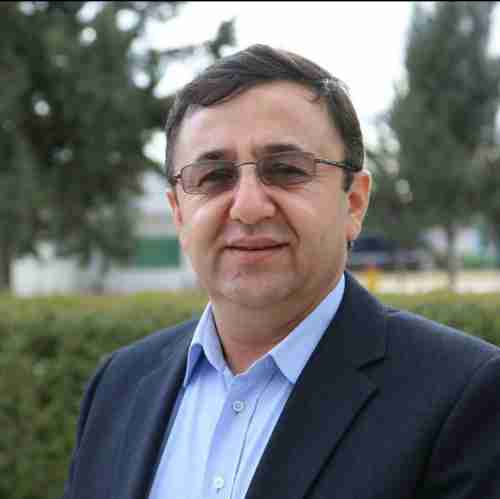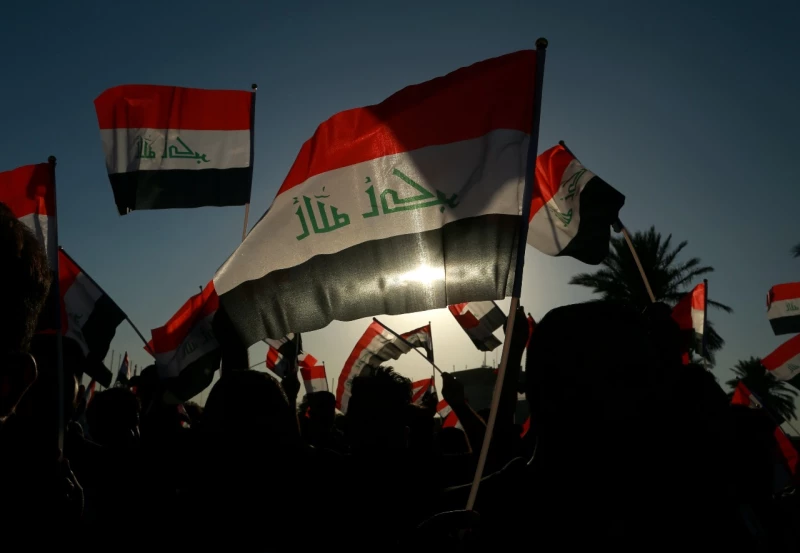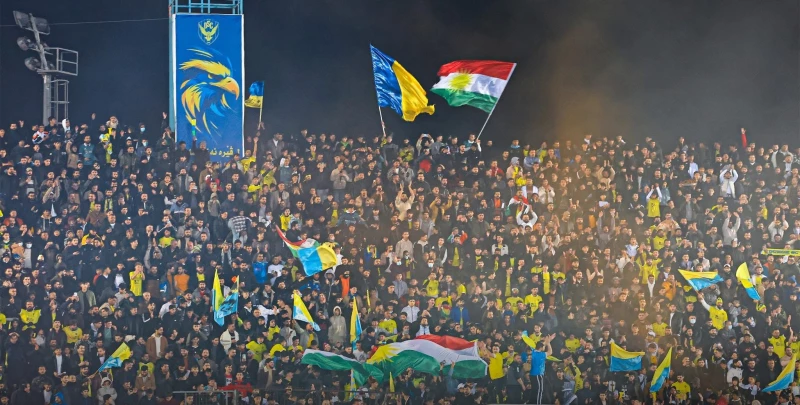Why is it important to identify the accoutrements of political reality, whether they are institutions, parties, or governments? In analyzing the Kurdish situation in Iraq and the Kurdistan Region's relations with the central government, let us move away from superficial slogans and propaganda and instead take a deeper look at the power structure in Iraq that defines Iraqi politics today.
Without understanding how the structure of the Iraqi state is formed, legally, politically, socially, and militarily, any debate around oil, the budget, the disputed territories, or federal relations with Kurdistan remains incomplete.
In a historical overview, one may bear witness to three distinct Iraqi states:
1. The first state (1921-2003): Sunni centralism, under British rule, the Hashemite monarchy, and then the Baathist regime for many decades. The Kurds were seen as a threat to Arab nationalism, and their presence in Iraq's political geography was treated as a security problem rather than an opportunity for partnership.
2. The Second State (2003-2011): The drafting of the 2005 Iraqi Constitution following the US-led invasion two years prior gave rise to the promise of a federal democratic state. Federalism was introduced and the Kurdistan Region was recognized as a federal entity. This period provided theoretical opportunities for Kurdish role and partnership, but the practical implementation of these measures was often challenging and remained incomplete.
3. Third State (2012- present): The abundance of sectarian militias monopolized real power in the country. After the US withdrawal in 2011, Iran's influence over Iraq was fully established. A Shiite elite consolidated power through the judiciary, armed groups, and the bureaucracy.
Therefore, the Iraqi state is now a mixed regime: legally federal, but functionally sectarian. Today's Iraq is neither a pure democracy nor a de facto constitutional federal state. Instead, it is electorally quasi-democratic but controlled by entrenched sectarian bodies and groups.
Iranian-backed Shiite ruling elites, who manipulate federal institutions (such as the Federal Supreme Court), shape Iraqi political decision-making, and, because of the weakness of Sunni political factions, the Kurds are struggling alone against sectarian oppression.
Indeed, one may deem the main characteristic of the Iraqi state to be the influence of the militia on state policy, which in turn results in the politicization of the judiciary, especially in decisions related to oil, elections and affairs in the Kurdistan Region. Financial punishments levied against Erbil and the salient issue of salaries are the direct work of the militia groups.
The legal framework of the Iraqi state, especially the Iraqi constitution, could have provided a basis for partnership, but its most essential articles have been systematically violated.
The violated provisions of the Iraqi constitution include:
Article 1 says that federalism isthe basis of the administration of the state, but the articles related to the semi-federations of the Kurdistan Region have been repeatedly violated.
Article 5 emphasizes the rule of law and the power of the people, but the real power is in the hands of militia groups.
Article 9/b prohibits militias, yet to little avail.
Article 14 professes that all Iraqis are considered to be politically equal in the eyes of the state, but in practice the country is dominated by one faction.
Article 19/1 stresses the independence of the judiciary, but the Iraqi judiciary has been attacked and lost its reputation, especially when it is used politically against the Kurdistan Region.
Article 110 details the special powers of the federal government, but the powers are monopolized and mixed in such a way that Iraq is ruining its reputation every day.
Article 112/2 relates to the joint management of oil and gas resources. However, in the Iraqi state, the oil and gas sector is monopolized for the benefit of the ruling militia faction.
Article 115 pertains to regional rights, but the state considers the regions as backward.
Article 117 recognizes Kurdistan as a federal region. In practice, Iraq is strictly centralized and aims to weaken the Kurdistan Region.
Article 140 realtes to the settlement of disputed territories, but has been ignored since 2007.
These violations make the constitution a political tool in the hands of leaders with vested interests rather than a binding social contract.
The opportunities that the Kurds have lost
If there had been a strategic vision, the Kurds could have established themselves in such a way that Shiite sectarianism would not have dared to think of destroying Kurdish achievements, including security and institutional development.
Though the Kurdistan Region enjoys relatively healthy democratic practice compared to the rest of Iraq, we have seen the Region's parliament prove ineffective at two different times of war, once in 2017 when militias occupied Kirkuk and other Kurdish areas under US supervision, and the second time now that Kurdistan is under budgetary and salary blockade by Iraq.
There are many strategic steps that have been missed by the Kurds, including the failure to build a unified Kurdish national position on constitutional rights in Baghdad, Article 140, the budget, and oil.
Relying too much on bilateral negotiations with Baghdad without internationalizing the conflict is an obvious mistake, with the prospect of other actors applying diplomatic pressure offering an appealing avenue of ensuring the Region's rights.
A lack of or delayed political renewal and bureaucratic reforms within the Kurdistan Regional Government (KRG) also acts as an inhibiting factor.
Sunni absence and a strategic gap
The end of Sunni Arab political dominance after 2003 has led to the formation of rifts in Iraq's political structure, with the group's subsequent marginalization resulting in stark consequences for the country.
This marginalization has enabled a Shiite monopoly on national decision-making, and in many federal conflicts the Kurds have squared up against this dominance alone, with the federal government using the constitution, the courts, and the budgets to assert political dominance.
Kurdish resistance to these measures has allowed the ruling Shiite factions to portray any pushback from the Region as merely the pursuit of a narrow ethnic cause rather than the genuine pursuit of national democracy.
The passivity of Sunni political actors has thus weakened the implementation of constitutional provisions across Iraq, with the Kurds bearing the yoke of resistance alone.
The federal government in retaliation is using the budget issue as a weapon against Erbil, and is intensifying pressure on Kurdistan Region Prime Minister Masrour Barzani's government through budgetary means that threaten the Region's beleagured civil servants with hunger.
Federal payrolls and transfers are routinely delayed and conditions such as full control over oil revenues are postponed without guarantees of mutual recognition.
These hostile actions pose the question: Should the KRG hand over oil and customs revenues without an appropriate constitutional mechanism?
No, doing so without legal guarantees or federal fiscal law is a strategic mistake.
The pressure campaign on the KRG aims to break the will of the Region's population and create internal divisions.
The challenge now is to maintain institutional resilience while refusing to be reduced to an administrative unit under sectarian centralism.
To deal with Iraq as it is, not as it was imagined, the Kurds must formulate their demands within the legal and international framework and not just revolve around emotional or nationalist circles - federal violations must be documented and raised globally.
The KRG should seek guarantees by treaty mediated by external parties, not by verbal or inter-party agreements. Developing alliances with pro-democracy actors across Iraq, even if weak, must be strengthened and strategic thinking developed beyond traditional dialogue.
The Shiite faction has decided to transform Iraq from a federal project to a Shiite-Islamic nationalist regime, posing a central existential threat to the 2005 constitution. The current political order is designed to maintain sectarian supremacy.
The use of famine and economic sanctions against a federal entity in the Kurdistan Region should be treated as a violation of international humanitarian norms, and Erbil can utilize international legal procedures through the UN and arbitration courts regarding budgetary allocations and oil exports.
Mixing militias with official structures is illegal under Article 9 of the Constitution and has militarized the state. Yet the KRG and other actors can fight back by building a stronger civil society to fight tribalism and bureaucratic deterioration.
Strengthening digital diplomacy and regional alliances is worthwhile. Framing the Kurdish issue not only as a national demand but also as a federal-democratic reform project in Iraq must be addressed in the future, and it is important to ensure that the positions of the Patriotic Union of Kurdistan (PUK) and the Kurdistan Democratic Party (KDP) in Baghdad are coordinated with a unified legal and institutional agenda.
Conclusion: Structure is politics
Iraq today is governed by a system that runs contrary to its constitutional claims. Understanding the depth of Kurdish marginalization requires an understanding of the dominant sectarian and militia structure of the post-2012 Iraqi state.
The way forward must combine constitutional insistence, strategic diplomacy, and the international framework. What the Kurds are facing is not only marginalization, but also a structural and existential challenge to their federal and economic position within Iraq.
The first step is to address this reality clearly and systematically.
Knowing the structure of power in Iraq is knowing the depth of its policies - only then can alternative futures be shaped.
The views expressed in this article are those of the writer and do not necessarily represent the position of The New Region's editorial team


 Facebook
Facebook
 LinkedIn
LinkedIn
 Telegram
Telegram
 X
X



